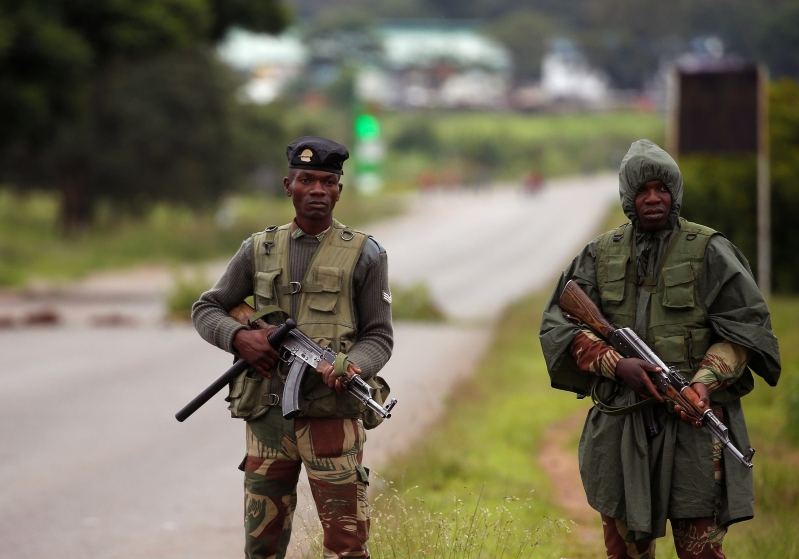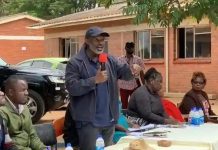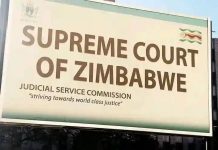Dusk had fallen on the second day of violent anti-government protests in Harare when the company commander gathered his men and relayed orders for the night’s operation.
The task, said a long-serving NCO, was straightforward: go into the poor suburbs of Zimbabwe’s capital, find opposition activists, and “punish them.”
“Our lieutenant told us to find them. We got our information of where the Movement for Democratic Change activists live from members of Zanu PF,” the soldier told The Daily Telegraph.
According to his own account, the soldier would take part in systematically breaking legs and would personally commit at least one rape in a door-to-door operation on January 15.
At least 12 people have been killed and more than 300 wounded, many of them from gunshots, since protests broke out across the country on January 14.
Zimbabwe’s government has denied authorising soldiers to commit abuses in its efforts to restore order.
But the country’s independent Human Rights Commission has accused security forces of systematic torture in the subsequent crackdown.
Rights groups yesterday raised the alarm about sexual violence.
“We have received very disturbing reports of a number of cases of women allegedly raped by security forces,” Dewa Mavhinga, southern Africa director for Human Rights Watch, said.
“Beatings, harassment and other abuses have continued after [President Emmerson] Mnangagwa’s return and there are no clear actions from the government to hold those committing abuses accountable.”






